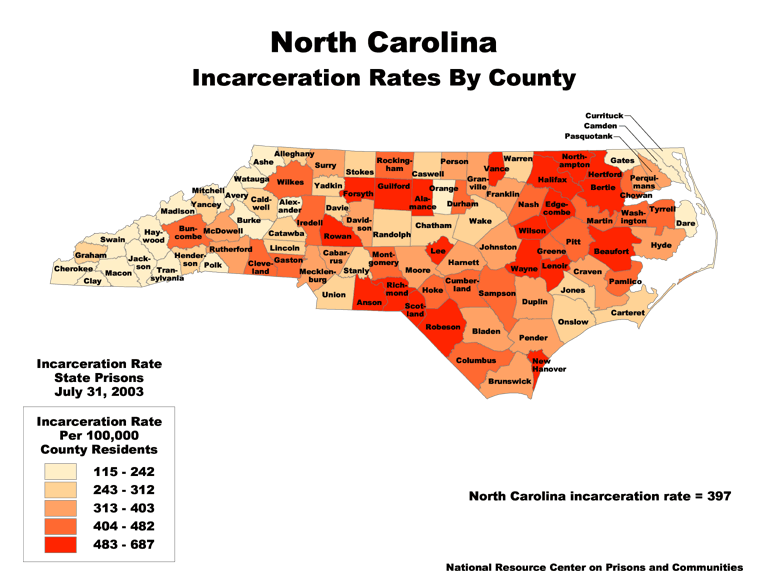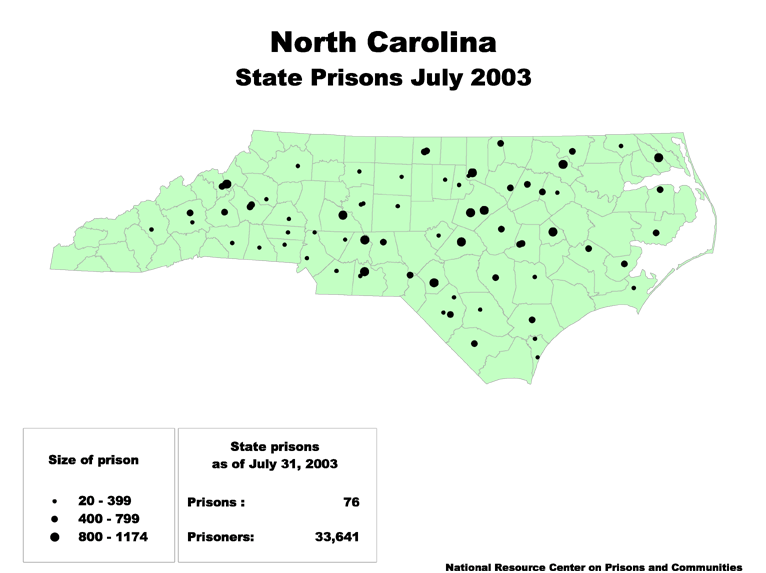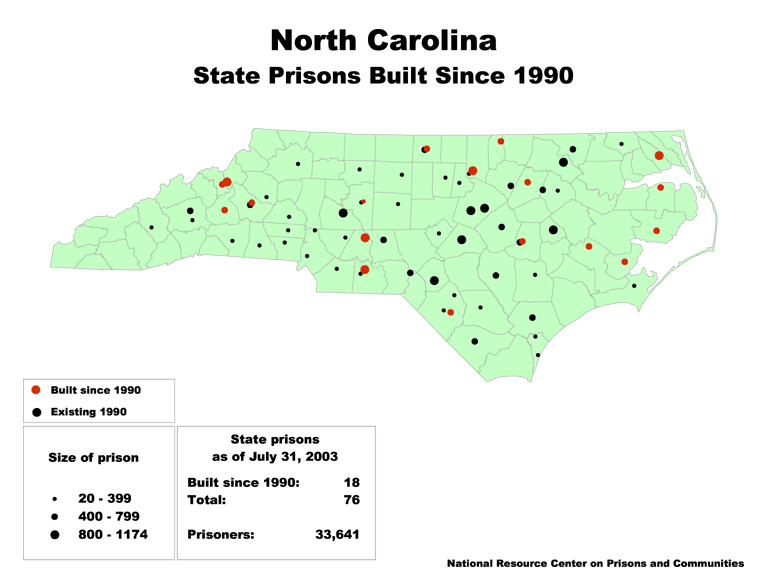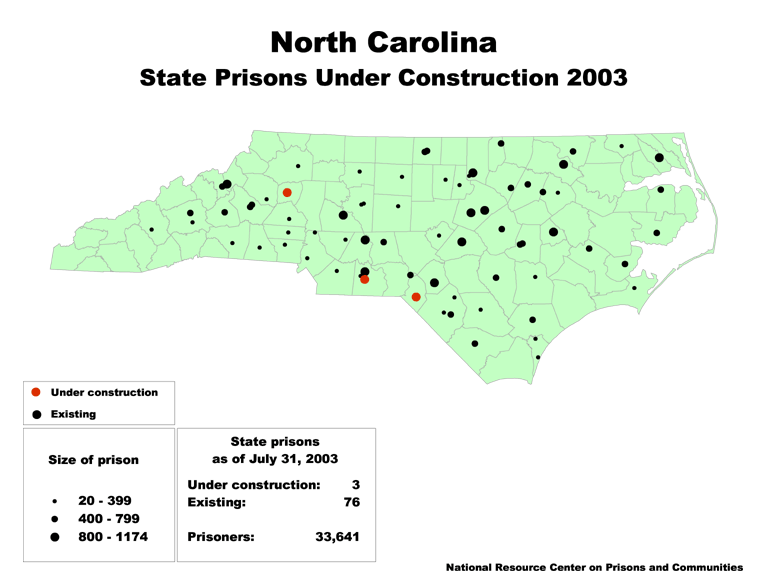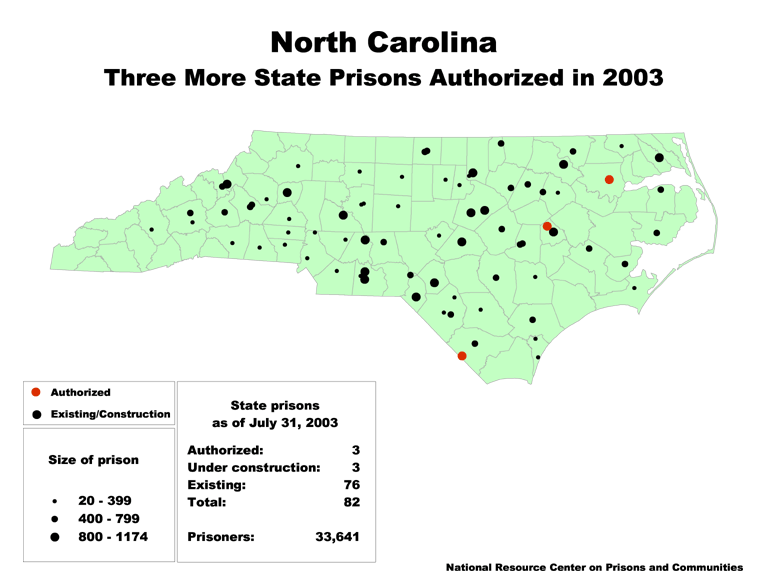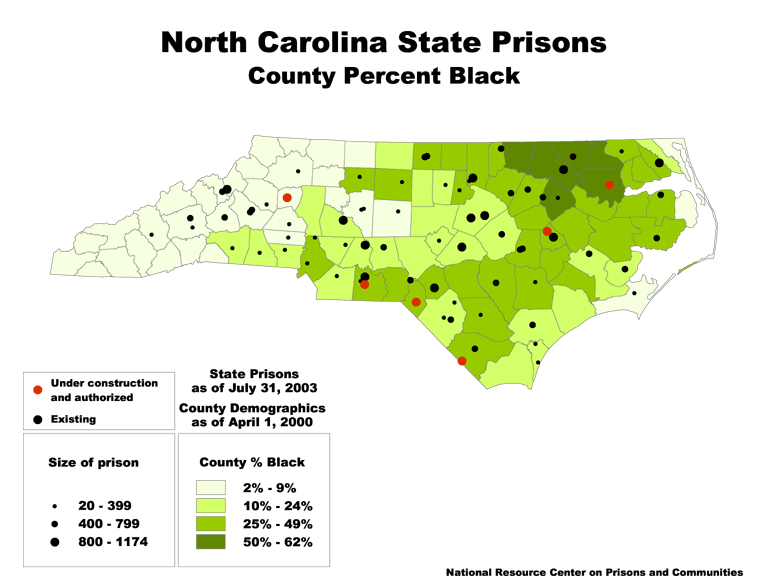Article discusses how rural prison expansion contributes to long-standing racial disparities between correctional officers and incarcerated people.
by Peter Wagner and Rose Heyer,
September 25, 2003
Originally published on September 25, 2003 on Alternet
By Peter Wagner and Rose Heyer
In September 1971, thousands of prisoners at Attica prison in rural New York State rebelled, taking control of D-yard. Sixty-three percent of the prisoners were black or Latino, but at that time there were no blacks and only one Latino serving as guards. Seventy percent of the prisoners were urban, mostly from New York City, but 80 percent of the guards were from rural New York.
The disparity between the keepers and the kept increased tensions at the prison by inserting a cultural gulf between guards and prisoners, and by giving black and Latino prisoners painful evidence that their fate was, in part, determined by race.
After four days of negotiations, Governor Rockefeller ordered an assault on the prison, turning what was then the largest prison rebellion into the bloodiest. Thirty-two prisoners and 11 guard hostages died, almost all in the retaking of the prison.
Attica and the investigation into its causes caused a fundamental reexamination of correctional policy throughout America. While food, mail policies and rehabilitative programs were improved, the demand for more black and Latino staff proved to be among the easiest to support and the most difficult to implement. Writing in 1973 about “modern” correctional facilities, leading scholar William Nagel well summarized the response and the dilemma: “To avoid a federal Attica, the Federal Bureau of Prisons is now feverishly attempting to recruit black staff, but its task is complicated by the remoteness of its facilities.”
By 1995, the latest year with complete data, the prisoner population at Attica had increased to 80 percent black and Latino. But out of a total staff of 854, the number of blacks had only risen to 21 and the Latino staff to 7. Attica’s staff remains 96.7 percent white because Attica itself has not moved. It remains in a rural, overwhelmingly white region in New York State.
While prisons themselves are impossible to move, this lesson of Attica about the dangers of prisoner-staff disparities has been lost in the rush of the late 1980s and 1990s to build more prisons. Speculative ideas about rural economic development have trumped safe and rehabilitative correctional policy. Two-thirds of new prisons have been built in rural areas despite the experience at Attica and despite the research showing that incarcerating a prisoner close to home aids family visits and helps reduce the odds a prisoner will re-offend and be returned to prison.
Prior to 1980, 36 percent of prisons were in rural areas, although only 20% of the country is rural. But by the early 1990s the trend was going the wrong way, with 60 percent of new prisons being built in rural areas.
Senior federal officials explained the results to Nagel in 1973: “In the rural areas you get the very best type of white, mid-American line staff; but it is admittedly more difficult to recruit blacks and professional staff which are available in the cities.”
Has the federal Bureau of Prisons or state departments of correction succeeded in overcoming the difficulties in attracting black staff to rural prisons? According to our analysis of prison staffing at each prison operating in 1995, the answer is no.
In 1995, there were 889 federal and state prisons with at least 100 black prisoners. After excluding a handful that did not provide the race of prisoners or staff, we were able to identify only 64 prisons where the percentage of staff that were black was at least as high as the percentage of the prisoners that were black. Of those prisons, not one was outside of the south or the urban cities of the north.
Half of the prison cells in this country are filled with black citizens, but only 20 percent of the prison jobs are held by black employees. In the eyes of the American justice system, it appears every race still has its separate place.
Peter Wagner is a Soros Justice Fellow at the Prison Reform Advocacy Center in Cincinnati, Ohio. Rose Heyer is an independent researcher in Massachusetts.
Johnny Cash consistently identified with the downtrodden and recorded a number of songs about the hopeless misery of imprisonment.
by Peter Wagner,
September 12, 2003
San Quentin, may you rot and burn in hell.
May your walls fall and may I live to tell.
May all the world forget you ever stood.
And the whole world will regret you did no good.
–Johnny Cash, “San Quentin” 1969
In Memory of Johnny Cash
February 26, 1932 – September 12, 2003
September 12, 2003 — The Man in Black, country music star Johnny Cash, died today at age 71. Although Johnny only spent one day in jail himself, he consistently identified with the downtrodden, eagerly performing a number of free concerts for prisoners. Two of these concerts became popular albums Live at San Quentin and Live at Folsom Prison. He was best known for Folsom Prison Blues, about the endless loneliness faced by a reformed man in prison:
I hear the train a-comin’
It’s rollin’ round the bend.
And I ain’t seen the sunshine
Since I don’t know when.
I’m stuck in Folsom Prison
And time keeps draggin’ on.
Johnny wrote or recorded a number of songs about the hopeless misery of imprisonment including Send a picture of Mother, The Wall, The walls of a prison, There ain’t no good chain gang, I got stripes, (I heard that) lonesome whistle, Green, Green Grass of Home, Give my love to Rose, Jacob Green, Austin Prison, Orleans Parish Prison, and a number of songs authored by prisoners present at his performances, including I don’t know where I’m bound.
In memory of the Man in Black, his work, and his music, it seemed appropriate to highlight two of his lesser known songs: “Man in Black” and “San Quentin”.
We’ll miss you Johnny. May all the world never forget you sang. All the world will rejoice you did so much good.
Man In Black
Well, you wonder why I always dress in black,
Why you never see bright colors on my back,
And why does my appearance seem to have a somber tone.
Well, there’s a reason for the things that I have on.
I wear the black for the poor and the beaten down,
Livin’ in the hopeless, hungry side of town,
I wear it for the prisoner who has long paid for his crime,
But is there because he’s a victim of the times.
I wear the black for those who never read,
Or listened to the words that Jesus said,
About the road to happiness through love and charity,
Why, you’d think He’s talking straight to you and me.
Well, we’re doin’ mighty fine, I do suppose,
In our streak of lightnin’ cars and fancy clothes,
But just so we’re reminded of the ones who are held back,
Up front there ought ‘a be a Man In Black.
I wear it for the sick and lonely old,
For the reckless ones whose bad trip left them cold,
I wear the black in mournin’ for the lives that could have been,
Each week we lose a hundred fine young men.
And, I wear it for the thousands who have died,
Believen’ that the Lord was on their side,
I wear it for another hundred thousand who have died,
Believen’ that we all were on their side.
Well, there’s things that never will be right I know,
And things need changin’ everywhere you go,
But ’til we start to make a move to make a few things right,
You’ll never see me wear a suit of white.
Ah, I’d love to wear a rainbow every day,
And tell the world that everything’s OK,
But I’ll try to carry off a little darkness on my back,
‘Till things are brighter, I’m the Man In Black
San Quentin
An’ I was thinkin’ about you guys yesterday. Now, I been here three times before, an’ I think I understand a little bit about how you think about some things, it’s none of my business how you feel about some other things and I don’t give a damn how you feel about some other things! But anyway, I tried to put myself in your place, and I believe this is the way that I would feel about San Quentin.
San Quentin, you’ve been livin’ hell to me.
You’ve galled at me since nineteen sixty three.
I’ve seen ’em come and go and I’ve seen them die,
And long ago I stopped askin’ why.
San Quentin, I hate ev’ry inch of you.
You’ve cut me and you’ve scarred me through an’ through.
And I’ll walk out a wiser, weaker man;
Mr Congressman, why can’t you understand?
San Quentin, what good do you think you do?
Do you think that I’ll be different when you’re through?
You bend my heart and mind and you warp my soul,
Your stone walls turn my blood a little cold.
San Quentin, may you rot and burn in hell.
May your walls fall and may I live to tell.
May all the world forget you ever stood.
And the whole world will regret you did no good.
San Quentin, you’ve been livin’ hell to me.
